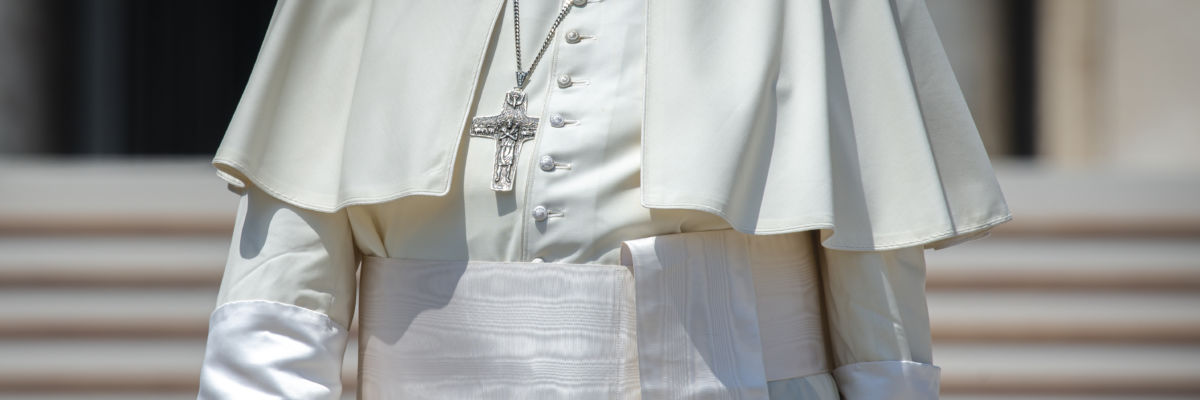
Homily for the Twenty-Fourth Sunday of Ordinary Time, Year B
Jesus and his disciples set out
for the villages of Caesarea Philippi.
Along the way he asked his disciples,
“Who do people say that I am?”
They said in reply,
“John the Baptist, others Elijah,
still others one of the prophets.”
And he asked them,
“But who do you say that I am?”
Peter said to him in reply,
“You are the Christ.”
Then he warned them not to tell anyone about him.He began to teach them
that the Son of Man must suffer greatly
and be rejected by the elders, the chief priests, and the scribes,
and be killed, and rise after three days.
He spoke this openly.
Then Peter took him aside and began to rebuke him.
At this he turned around and, looking at his disciples,
rebuked Peter and said, “Get behind me, Satan.
You are thinking not as God does, but as human beings do.”
He summoned the crowd with his disciples and said to them,
“Whoever wishes to come after me must deny himself,
take up his cross, and follow me.
For whoever wishes to save his life will lose it,
but whoever loses his life for my sake
and that of the gospel will save it.”
-Mark 8:27-35
From the late first century of the Christian era, beginning with the Apostolic Father St. Papias, throughout the age of the Fathers of the Church, into the fifth century with St. Jerome and beyond, there has been a consensus that St. Mark the Evangelist was a companion and disciple of St. Peter and that he wrote his Gospel in Rome based on Peter’s testimony. Thus it is that this briefest of Gospels shows signs of Peter’s perspective and personality.
Today’s Gospel reading is a very telling example.
In the more famous and more complete account of the scene at Caesarea Philippi in Matthew 16, we hear Our Savior pronouncing a blessing on Peter for his profession that Jesus is the Christ, the Son of the living God, and declaring him by a new name: the Rock on which he would built his indefectible Church. This all-important detail provides in Matthew’s account a merciful contrast to Our Lord’s severe rebuke of Peter just a few moments later. Going from the Rock of the only undefeatable reality in God’s world, inspired by the heavenly Father, to being a Satanic scandal who reasons only carnally, must have been quite an intense experience for Peter!
When one considers the importance of Peter’s primacy for Christian doctrine, it is remarkable that the very Gospel based on Peter’s testimony and instruction, written in Rome by his close companion, would omit these significant details. Why would Peter leave out his greatest commission? In Mark’s Gospel, Peter’s name change is just mentioned by-the-by in the third chapter, in parallel with the name Our Lord gave to James and John: “sons of thunder.”
Not only this; there is the fact that in Mark’s account Peter’s worst moments are depicted in greater detail than in the other Gospels. His betrayal of the Savior by his threefold denial is portrayed in full.
Let us consider that Peter had learned about humility from the example and words of the Lord, words to which he testified to Mark. In the ninth chapter of this Gospel we hear Our Lord say, “if any man desire to be first, the same shall be the last of all, and servant of all” (v. 35). Peter, the custodian of the Lord’s deposit of teaching, would have taken these words very much to heart, especially as he had been made “first” by the Lord himself. Thus he was at pains to leave to others the flattering details about his person, and to be frank about his own faults.
Peter had learned by the Lord’s example as he reluctantly consented to have his feet washed in the cenacle. And so he saw himself as the “servant of all.” This was for him the meaning of being the Rock on which the Church of Christ is built, a rock of strength as a rock of Christlike humility. After all, the Savior is absolutely the first of all both as God and as man, but he also humbled himself beyond anyone else and became the last of all. To imitate such humility is surely the task of one who is called, and rightly, the Vicar of Christ.
Church history bears this out. St. Gregory the Great in the sixth century was the first pope to use the title Servant of the Servants of God. This is the pope’s title almost ever since, in all the most solemn documents of the papacy. Why did he take this title? He explicitly adopted it to contradict the patriarch of Constantinople’s assumption of the title Universal Patriarch.
To be sure, such a title was sometimes given by others to the patriarch of the Eastern capital in Byzantium, but it was never used by him to refer to himself. The emperor wanted the bishops of the “New Rome” in the East to claim the same universal jurisdiction possessed by the successors of Peter in the Old Rome in the West. (Note: this shows that the primacy of Old Rome was settled doctrine. Otherwise why would they want to duplicate it in the East?) So Gregory the Great gave his brother bishop a lesson about accepting titles from secular authorities. While insisting that the bishop of Constantinople, as all bishops, is subject to the Apostolic See, he teaches that bishops should be content with the title of bishop which is enough from the point of view of theology.
Even the title papa, or “pope,” was a common title for every bishop in the Latin Church; St. Augustine used it, for example. Father and bishop: these were the sufficient titles for Gregory. Even today we call the pope most often by the names that refer to his paternity and the holiness of his office. The other grand titles given throughout history may be used by convention, but in speech and address we say, “Holy Father.”
As if this were not enough, Pope Benedict XVI removed the title Patriarch of the West from the list of papal titles. (It had only been added in the nineteenth century.) There is no jurisdiction of “the West”; there is only the See of Peter in Rome, which has jurisdiction over East and West. This jurisdiction is at its best, of course, when the successors of Peter are as humble as Peter was, more concerned to serve than to be served. This humility of service rather than worldly influence and media power can prove to all in East and West that he is the Rock on which Christ’s Church is built.
Let us pray for the Holy Father, and for all the prelates of the Church, that they may remain steadfast as servants of the servants of God.



